Over six decades, Nigeria’s Super Eagles have carved out a legacy as one of the most decorated teams in Africa Cup of Nations history.
Football holds a unique place in the hearts of Nigerians, and the Africa Cup of Nations (AFCON) stands as the continent’s premier tournament that unites the nation’s 200 million people in anticipation and passion as the Super Eagles vie for continental supremacy.
With an impressive collection of three AFCON championships, five runner-up finishes, and eight third-place medals, Nigeria leads the continent in total podium appearances.
However, Nigeria’s journey to AFCON glory was not immediate; for many years, the nation’s football ambitions and continental success seemed to run on separate tracks.
The Formative Years of Nigeria at AFCON
Nigeria’s AFCON debut came in 1963, six years after the tournament’s inception in 1957, which initially featured just four teams.
Following independence in 1960, Nigeria was not yet a member of the Confederation of African Football (CAF) during the first two editions and withdrew from the 1962 qualifiers amid a contentious clash with Tunisia.
In their maiden AFCON campaign, the then Green Eagles were eliminated in the group stage after losing both matches.
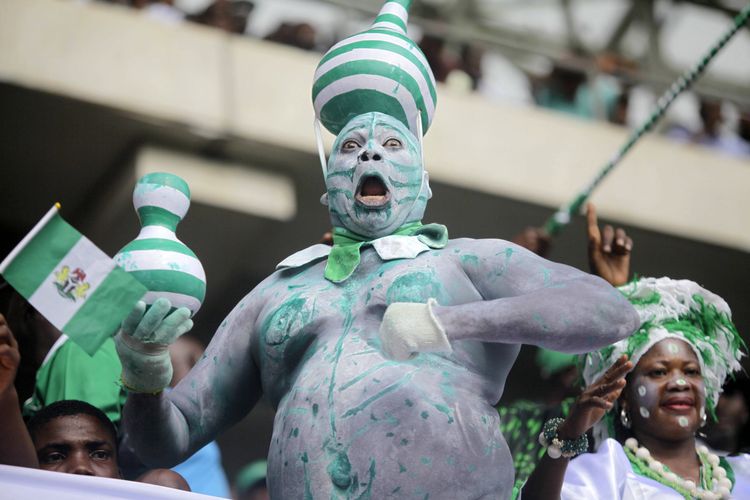
By the time Nigeria re-entered the competition in 1976, the landscape had shifted, with Egypt, Ghana, DR Congo, and Ethiopia already boasting titles.
That year marked a turning point as Nigeria, guided by the late Father Tiko, clinched their first AFCON medal-a bronze-signaling the awakening of a football powerhouse.
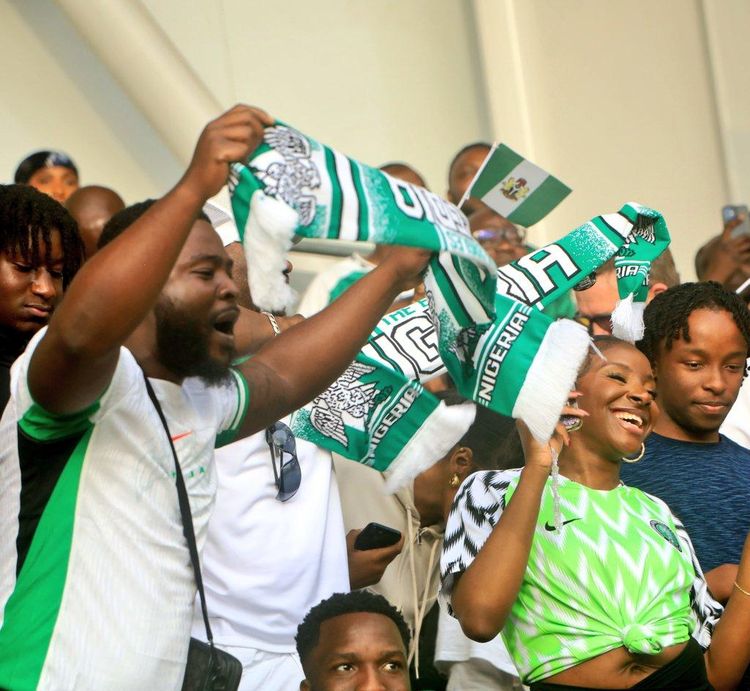
During an era dominated by radio broadcasts and monochrome television, players such as Christian Chukwu, Muda Lawal, and Segun Odegbami became national icons, inspiring children across cities like Enugu and Ibadan to emulate their heroes on the streets.
Another third-place finish in 1978 reinforced Nigeria’s growing stature, setting the stage for their breakthrough two years later.
Stay Updated with the Latest Sports News – Join Our WhatsApp Channel Today!
Triumph on Home Soil: Nigeria’s First AFCON Title
The year 1980 was a defining moment for Nigerian football.
Hosting the tournament for the first time, Nigeria, under the leadership of Brazilian coach Otto Gloria, showcased a vibrant, skillful style reminiscent of samba football, fueled by national pride.
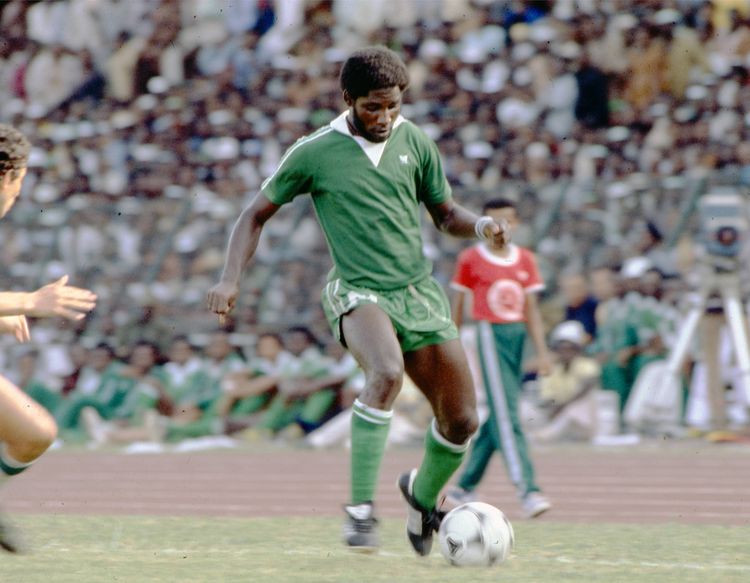
The final, held in Lagos against Algeria, remains etched in Nigerian sporting history. Odegbami’s dazzling dribbles led to two goals, complemented by a strike from midfield maestro Muda Lawal, culminating in a commanding 3-0 victory that sent the National Stadium into jubilation.
This triumph marked Nigeria’s inaugural AFCON championship and announced their arrival as a dominant force in African football.
Decades of Trials: Near Misses and Heartbreaks
The 1980s underscored the harsh realities of football success, blending moments of promise with bitter disappointments.
Nigeria reached the final in 1984 but succumbed 3-1 to a formidable Cameroon side led by the legendary Roger Milla.
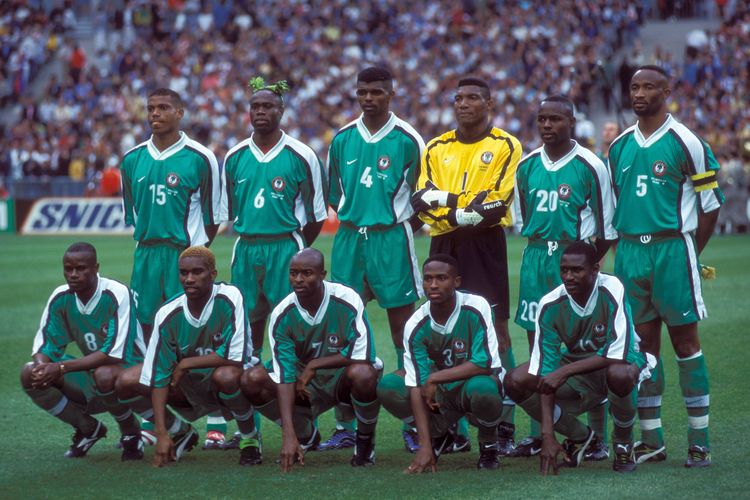
Four years later, in 1988, the Eagles faced Cameroon again in the final, this time enduring a controversial defeat marked by a disallowed goal from Henry Nwosu-a moment still debated passionately in Nigerian barbershops today.
Despite setbacks, Nigeria was forging a distinct identity: fearless, skillful, and proud. This era nurtured the core of what would become the Golden Generation, featuring talents like Stephen Keshi, Rashidi Yekini, and Uche Okechukwu.
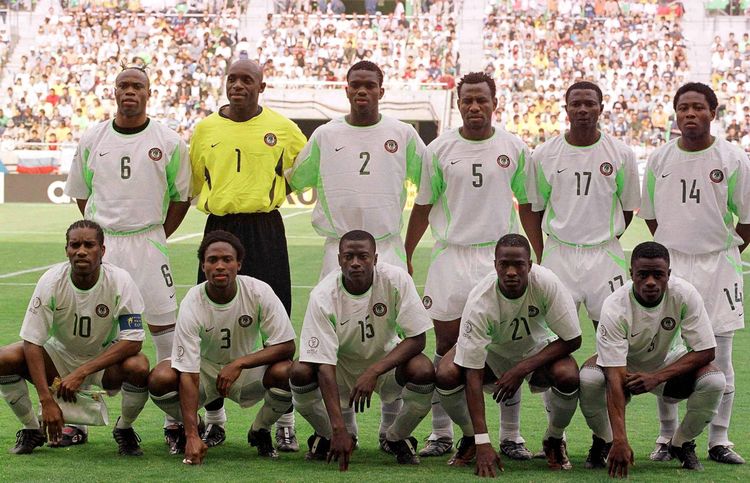
The Golden Era: Nigeria’s 1990s Football Renaissance
The 1990s heralded a golden age for Nigerian football.
The Super Eagles finished as runners-up in 1990 on Algerian soil and secured a bronze medal in Senegal two years later, signaling their growing dominance.
By 1994, Nigeria’s football prowess reached its zenith.
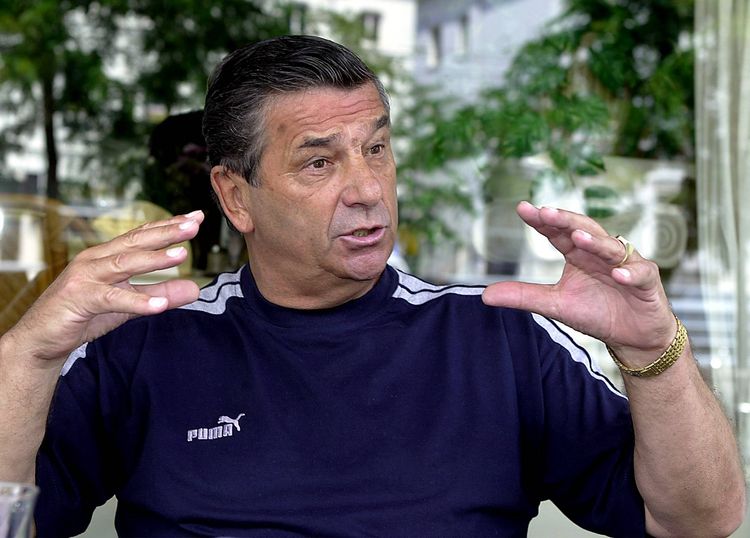
Rebranded as the Super Eagles, Nigeria entered the 1994 AFCON in Tunisia with unmatched confidence and talent.
Rashidi Yekini’s clinical finishing, Austin Jay-Jay Okocha’s mesmerizing skills, and Sunday Oliseh’s midfield dominance, supported by Samson Siasia, Finidi George, and Daniel Amokachi, made the team formidable.
Emmanuel Amuneke, on his AFCON debut, scored twice in a thrilling 2-1 comeback victory over Zambia, securing Nigeria’s second continental crown.
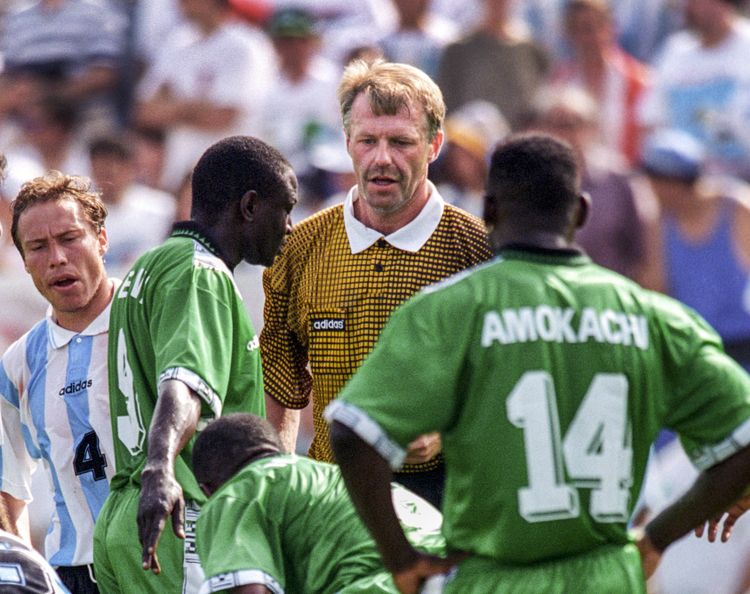
This squad was not only Africa’s finest but also earned global acclaim at the 1994 FIFA World Cup in the United States, setting a benchmark for future Nigerian teams.
Challenges and Rebuilding: The Post-Golden Generation Era
The mid-1990s brought turbulence as Nigeria withdrew from the 1996 AFCON in South Africa due to political issues, resulting in a CAF ban that sidelined the team until 2000.
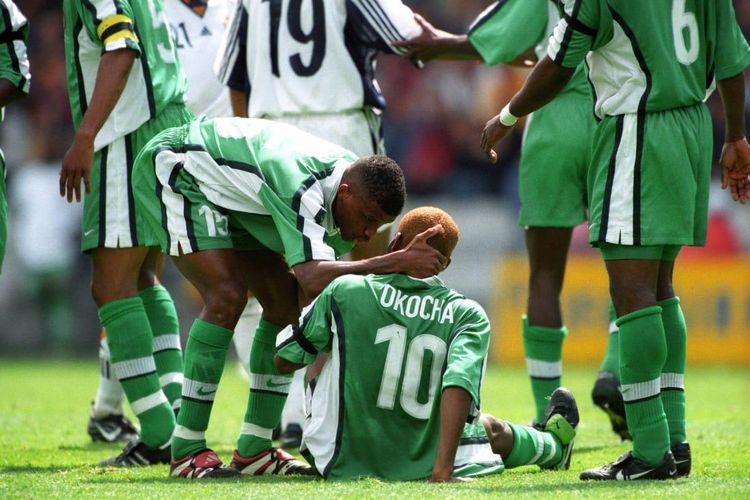
Many promising talents from the 1994 squad, including Amokachi, Siasia, and Benedict Iroha, never returned to the AFCON stage.
Co-hosting the 2000 AFCON with Ghana, Nigeria’s campaign was a rollercoaster that ended in heartbreak after a penalty shootout loss to Cameroon in the final, despite dazzling performances from Jay-Jay Okocha and Nwankwo Kanu.
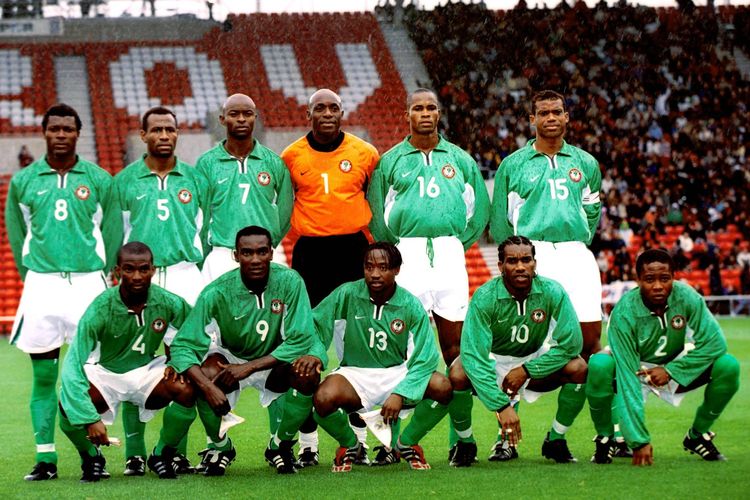
The 2000s were marked by cycles of hope and frustration, with stars like Okocha, Kanu, Obafemi Martins, Julius Aghahowa, and Yakubu Aiyegbeni shining intermittently, yet the elusive third AFCON title remained out of reach.
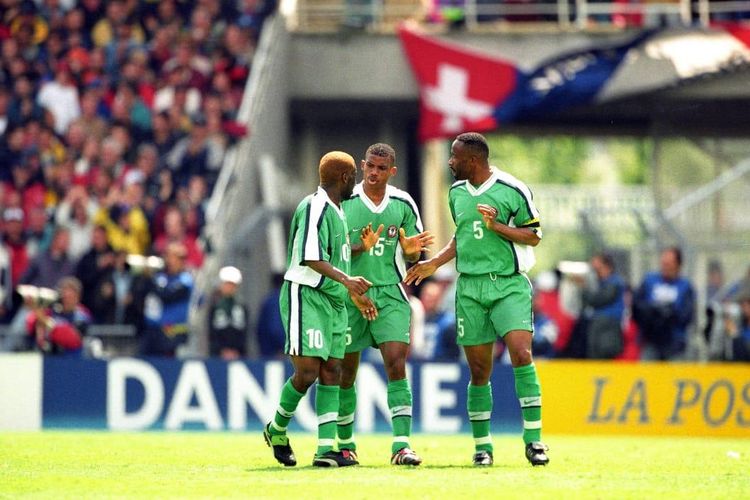
Nonetheless, Nigeria’s consistency shone through with four third-place finishes in five tournaments between 2002 and 2010.
Redemption and Glory: The 2013 AFCON Victory
After a period of struggle, Nigeria’s resurgence came in 2013, led by a familiar figure.
Stephen Keshi, captain of the 1994 champions, returned as head coach, instilling belief in a squad underestimated by many.
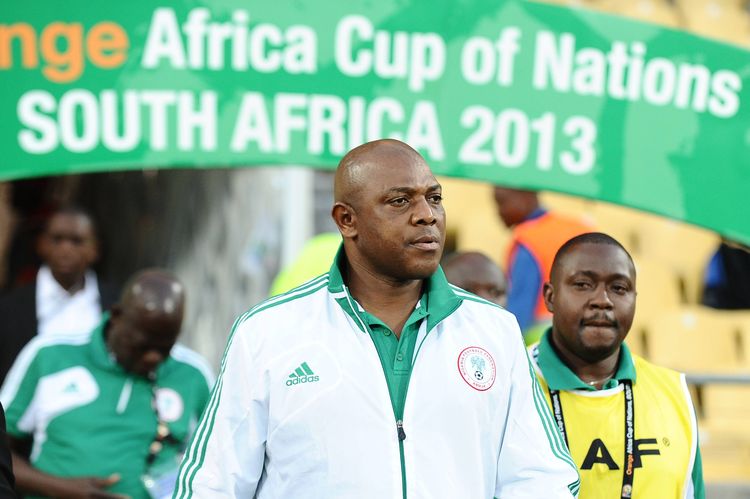
Defying expectations, Nigeria advanced steadily, with Sunday Mba, a local league standout, emerging as the unlikely hero by netting the winning goal against Burkina Faso in the final.
Keshi’s achievement was historic, making him only the second individual to win the AFCON as both player and coach.

Fittingly, Nigeria reclaimed the AFCON crown on South African soil, the same nation where political turmoil had previously disrupted their football journey.
Reinventing the Super Eagles: Recent Years and Future Prospects
Following the 2013 triumph, Nigeria faced challenges, missing out on the 2015 and 2017 AFCON tournaments-a rare setback for the footballing giant.
Returning in 2019 under coach Gernot Rohr, a youthful squad led by John Mikel Obi, Ahmed Musa, and Odion Ighalo fought valiantly to secure third place.
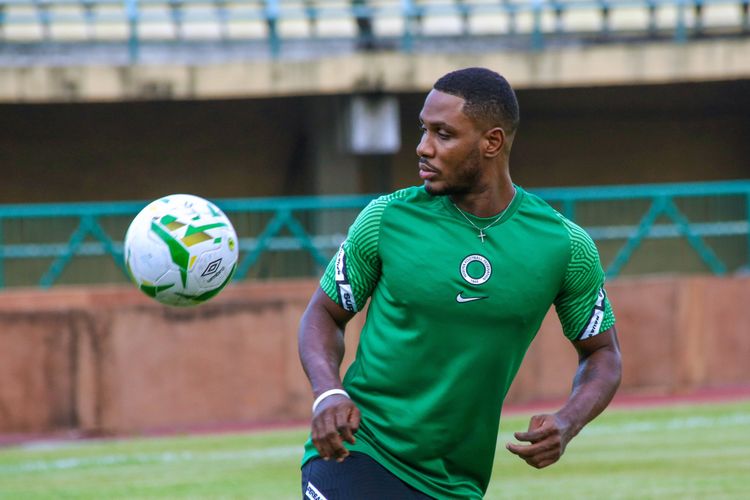
By 2021, Victor Osimhen emerged as the new face of Nigerian football-dynamic, determined, and brimming with potential. Alongside talents like Ademola Lookman, Samuel Chukwueze, and Alex Iwobi, this generation is poised to forge its own AFCON legacy.
Under Portuguese coach José Peseiro, the Super Eagles battled through formidable opponents including hosts Côte d’Ivoire, Angola, Cameroon, and South Africa to reach the 2023 AFCON final-their first final appearance since 2013.
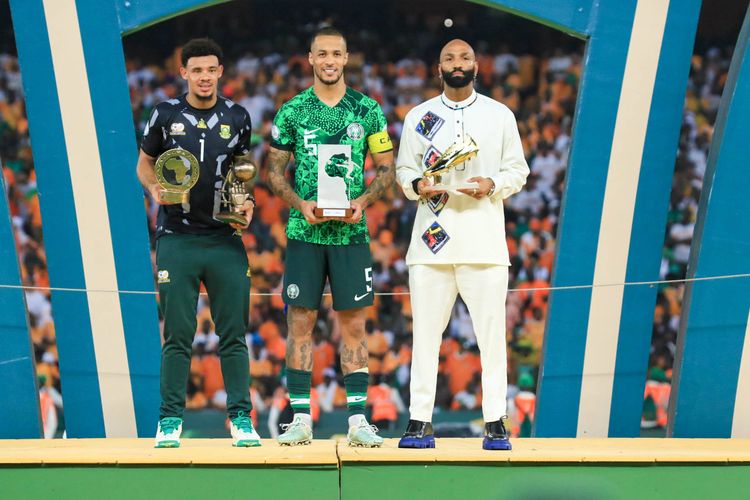
Despite a valiant effort, Nigeria fell 2-1 to Côte d’Ivoire in the championship match.
As the 2025 AFCON approaches in Morocco, Nigeria, energized by stars like Osimhen and Lookman, aims to reclaim its position atop African football.
Super Eagles’ AFCON Achievements and Records
Throughout 62 years of AFCON participation, Nigeria’s Super Eagles have set numerous records and milestones.
Noteworthy highlights include:
- The Super Eagles have an impeccable record in third-place matches, winning all eight they have contested-the highest number of bronze medals by any nation in AFCON history.
- Nigeria shares the record for most semifinal appearances (16) with Egypt, underscoring their consistent presence among Africa’s elite.
- With five final losses, Nigeria holds the joint record (alongside Ghana) for the most AFCON final heartbreaks.
- Christian Chukwu was the first Nigerian to earn the AFCON Best Player award in 1980. Other recipients include Rashidi Yekini (1994), Austin Okocha (2004), and William Troost-Ekong (2023).
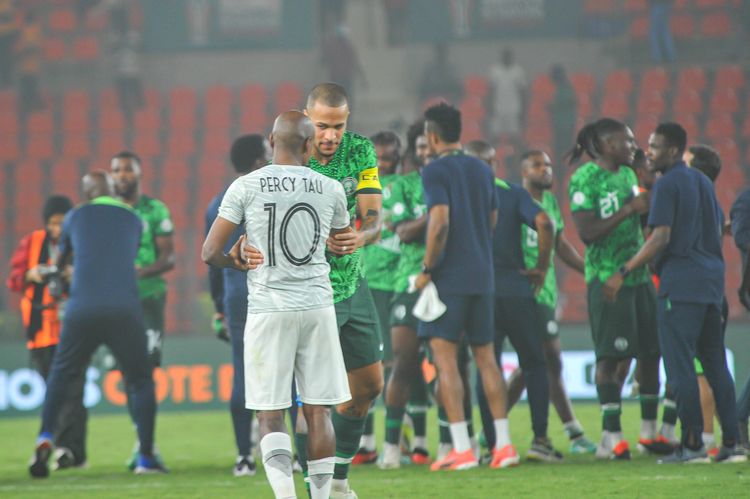
- Segun Odegbami was Nigeria’s first AFCON top scorer, netting three goals in 1978 and repeating the feat in 1980. Other Nigerian golden boot winners include Yekini (twice), Julius Aghahowa, Okocha, Emmanuel Emenike, and Odion Ighalo.
- At the 2013 AFCON, five Nigerian players-Vincent Enyeama, Efe Ambrose, Victor Moses, Mikel Obi, and Emmanuel Emenike-were named in the Team of the Tournament, the highest representation by any nation in AFCON history.
- Rashidi Yekini remains Nigeria’s all-time leading scorer at AFCON with 13 goals in 24 matches, followed by Okocha (7), Odegbami (6), Aghahowa (6), Peter Odemwingie (5), Odion Ighalo (5), William Troost-Ekong (5), and Muda Lawal (5).



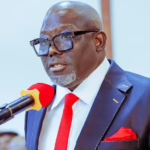





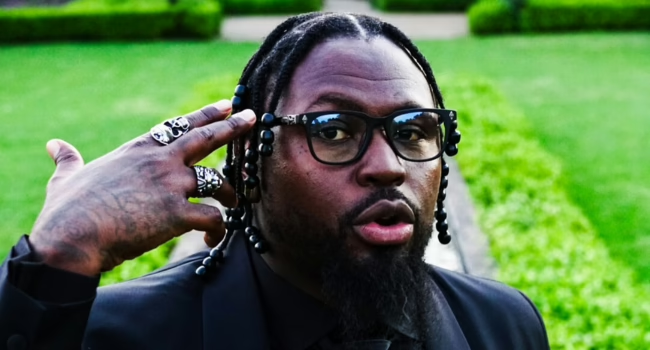













0 Comments